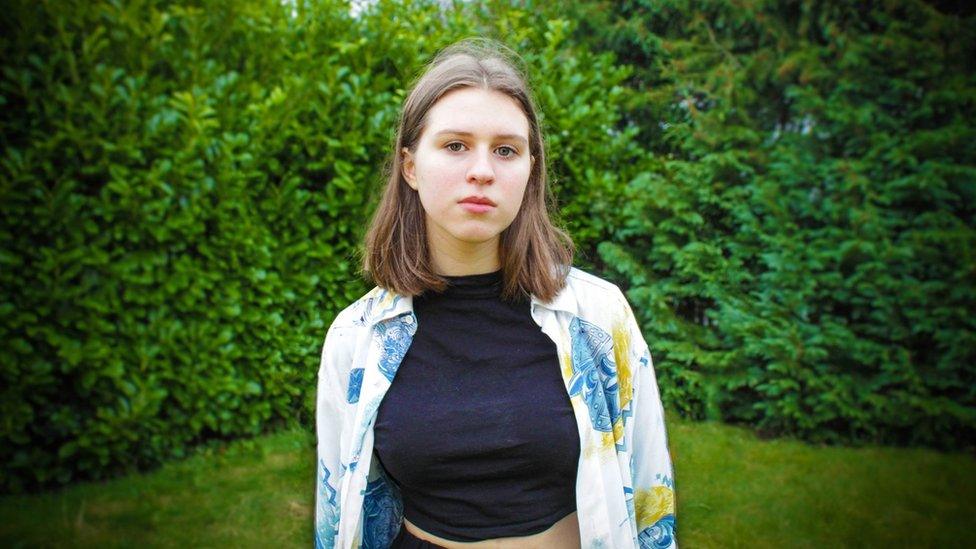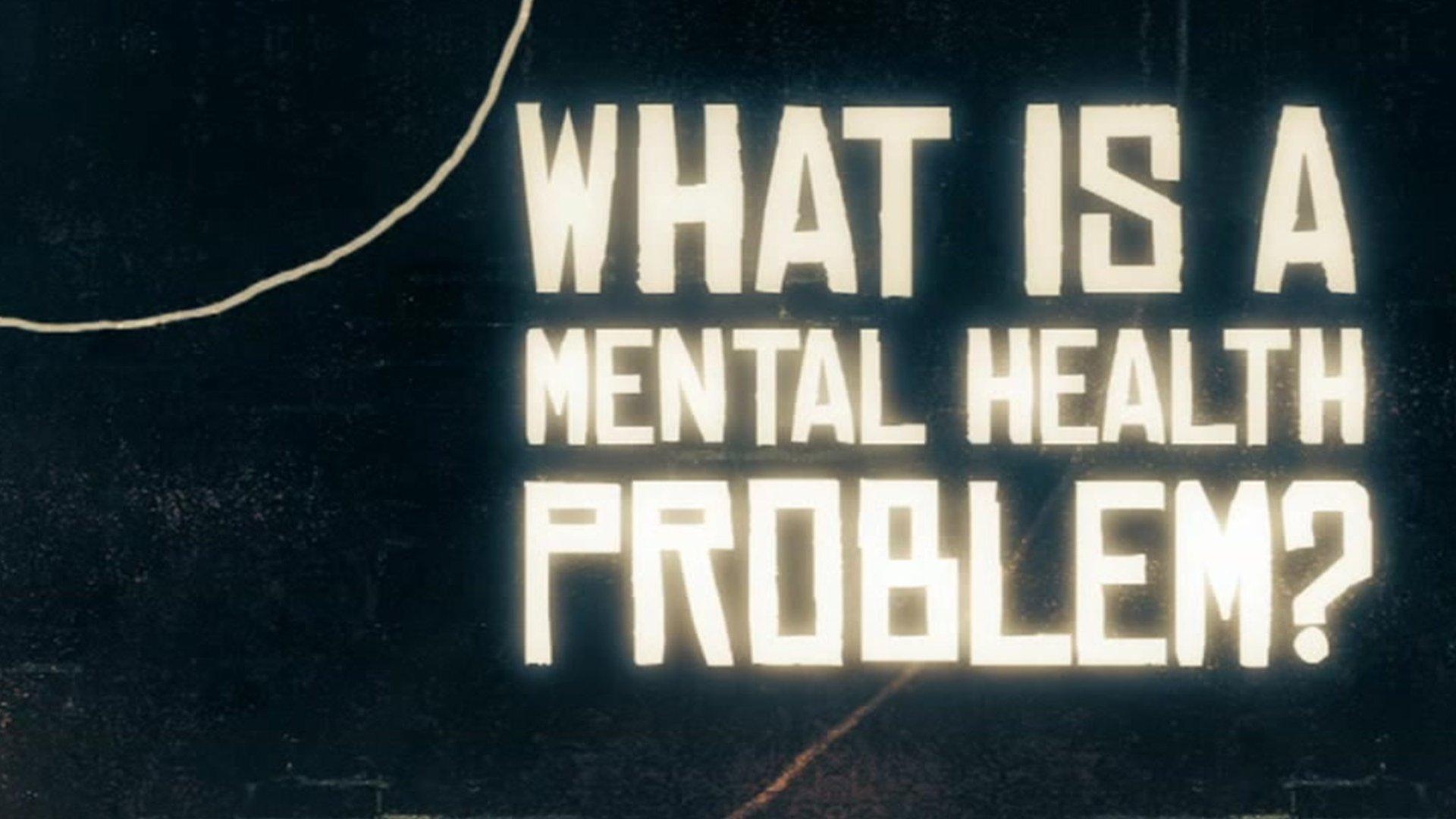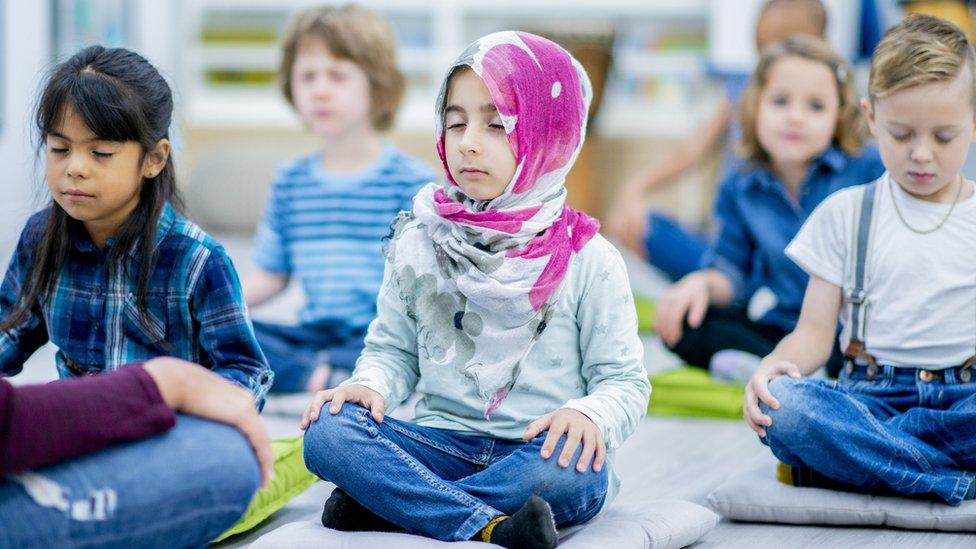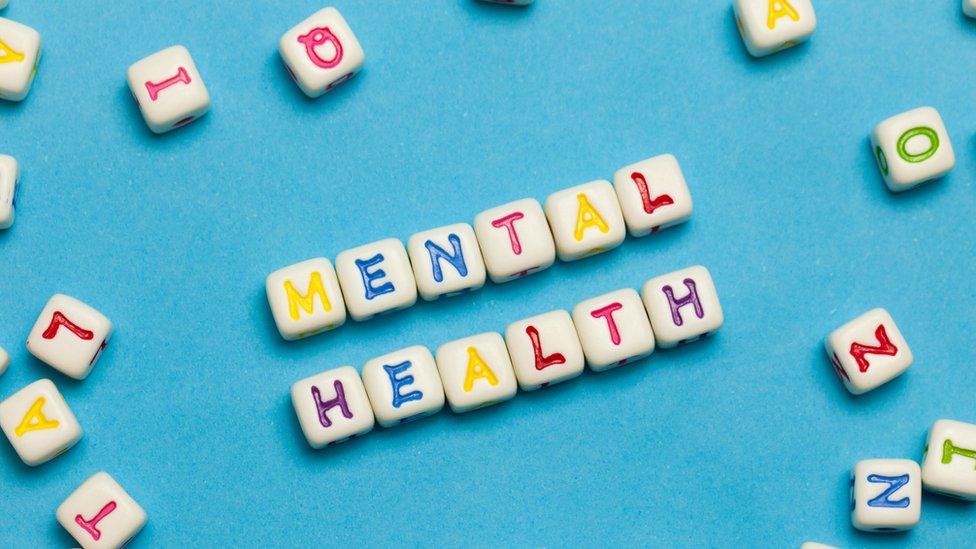Inside My Head: What is an anxiety disorder?
- Published
- comments

Not too long ago, mental health was a very hard thing for people to speak openly about.
This week is Children's Mental Health Week and thanks to campaigners like 16-year-old Molly and her group - We Will - they are breaking the stigma surrounding mental health.
Molly is from Cumbria, where she has found mental health services are not always able to do enough to help young people in her area.
After struggling with severe anxiety for a number of years, she was finally given access to a counsellor through CAMHS - the UK's national service for children's mental health.
Now she is leading a documentary which explores ways in which young people can help manage their mental health at home, even when they don't have access to a counsellor.
Through mindfulness and adjusting her diet and exercise, Molly discovers what lifestyle changes have the best impact on her mental health.
But there are still many people who don't know what anxiety is or how it can affect your mental health.
What is an anxiety disorder?
An anxiety disorder is when someone feels anxious or stressed out a lot of the time.
It might be to the point that it affects their day-to-day life. It might also negatively affect the way they feel about themselves.
However, being anxious is not necessarily a bad thing!
Inside My Head: How does anxiety make you feel?
For example you may feel anxious preparing for an exam or going to a new school for the first time.
These are situations in which being anxious is a totally normal response.
But there's a big difference between being anxious occasionally and feeling anxious regularly.
When is anxiety a problem?
Many people will experience anxiety without having an anxiety disorder. Anxiety becomes a problem when it gets in the way of your life.
When your worries lead you to give up a hobby you previously loved, or if it stops you going to school or hanging out with your friends, this is a problem.
If you can't sleep or concentrate because of your anxious thoughts, it is important to speak to an adult you trust about how you're feeling.
Katie Thistleton shares what it is like living with anxiety
How common is anxiety in young people?
If you have been diagnosed with anxiety - you certainly are not alone.
According to the Royal College of Psychologists in 2017 nearly 300,000 young people in Britain have an anxiety disorder.
It is considered a common mental health problem to have.
In fact, it is estimated that 1 in 10 people will have an anxiety disorder or phobia at some point in their lives.
However, there are many people who still feel that anxiety is something to be ashamed of or who may not recognise what they are coping with.
How does anxiety make you feel?
When you feel anxious, your body will increase hormones that push your heart rate up to prepare you for a physical reaction.
Your mind will also focus more on the danger, reducing outside distractions.
Thousands of years ago, anxiety was a useful way to keep our ancestors alive. It helped protect us from predators - preparing us to fight any oncoming threats, or to run away.
The impact of anxiety can change from person to person, but below are some of the more common signs.
Feeling sick
Faster breathing
Faster heart rate
Dizziness
Shaking
Needing the toilet more
Upset tummy or 'butterflies'
Fear
Worry
Anger
Feeling annoyed or tense
Unable to concentrate
Unable to relax
Inside My Head: When is anxiety a bad thing?
What causes anxiety?
There is no one thing that causes anxiety - it might be down to a number of things.
It is thought that some types of anxiety can be inherited from your parents, so some people may actually be born more likely to be anxious than others.
Upsetting events or situations could also trigger an anxiety disorder. This could include an experience of bullying, death of a loved one or a family separation.
Social situations
Speaking publicly - even in small groups
Body dysmorphia - you may think your body does not look right or is not normal
Health - worrying about how well you are
Phobias of insects, the dark, heights, small or busy spaces
But there are many other things that might cause someone to feel anxious.
Physical conditions and other mental health problems like depression can also cause anxiety.
Anyone can develop an anxiety disorder - but thankfully there are lots and lots of ways to treat anxiety.
Recognising when and how your anxiety affects you is a big step to taking back control.

Talking about how you feel to someone you trust can be the best step you can take to look after your mental health
How can you treat anxiety?
There are loads of ways to treat anxiety.
If you're concerned about your anxiety, one of the best things you can do is to talk to an adult you trust about it.
They can help you find the best support you need to treat your anxiety.
Most importantly, when you feel ready, it is good for you to speak to a doctor because they may be able to help you get some counselling or may give you some medication to help you manage your anxiety better.
If you don't feel ready to speak to someone yet or if you would like to know how to help manage your symptoms, here are a few suggestions for what you can do:
Healthy eating: Skipping meals and eating lots of sugary snacks can often make anxiety worse, so it's good to try and eat healthily to manage anxiety.
Sleep: Lack of sleep can make us feel stressed out and worried. An early night can do a lot to help your mental health. Check out our top sleep tips here.
Exercise: Sometimes all that anxious energy has to go somewhere! Exercise has been proven to significantly reduce anxiety and boost positive thinking.
Mindfulness: Mindfulness can be a tricky thing to understand, but essentially it is a way to focus your mind to take control of negative thinking.
Breathing: Often, when we're anxious, we take smaller, quicker breaths - try breathing in for three seconds then breathing out for five seconds until you feel calmer.
If you are worried about feeling anxious but you are not sure who to speak to, call Childline on 0800 1111 or visit
You can watch the full documentary on Thursday at 5pm on CBBC.
- Published10 October 2019

- Published18 February 2019

- Published23 July 2019

